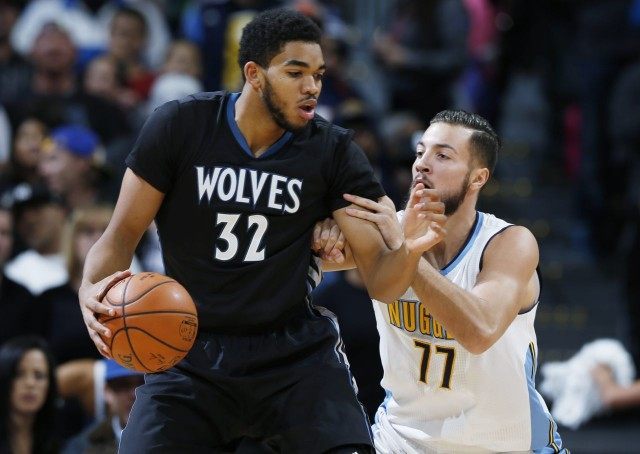A class-action lawsuit was filed this week against the Minnesota Timberwolves, asserting that the team “fundamentally, and unlawfully, alters the way Timberwolves ticket holders may use and transfer tickets.”
The Timberwolves partner with Lynx to use the digital marketplace Flash Seats to sell all their tickets. The suit, filed by law firm Zimmerman Reed, alleges “the Timberwolves’ new ticket policy eliminates paper tickets and imposes draconian and unlawful limitations on the ability of ticket holders, including season ticketholders, to acquire, sell, or transfer the tickets for which they paid.”
GLS Companies of Brooklyn Park and James Mattson, both season-ticket holders, argue that they were left unaware of changes in ticketing policy when they spent $32,000 and $21,000, respectively, on season tickets in 2015-16.
The lawsuit notes the poor performance of the team, which has missed the playoffs for 12 straight years and ranks last in the NBA in attendance, stating, “Ticket holders now are barred from selling their tickets below an arbitrarily imposed minimum price – somewhere between 75 and 90 percent of the ticket’s face value in most instances. Because the Timberwolves have performed so poorly, Plaintiffs and class members have been left holding the bag, since reasonable market purchasers have no interest in paying premium prices for a team mired at the bottom of the conference standings with no hopes of making the NBA playoffs.”
The lawsuit claims six legal bases for relief: breach of Contract; violations of the Minnesota Prevention of Consumer Fraud Act, violations of the Minnesota Unlawful Trade Practices Act, violations of the Minnesota Uniform Deceptive Trade Practices Act, violation of the Minnesota Antitrust Law of 1971, and unjust enrichment.
The lawsuit points out that prior history allowed ticket holders to “use them in any manner they chose … the ticket holder had full control over the purchased paper tickets.… Thus, if Defendant decided to change its ticketing policy to eliminate the rights of ticket holders to sell or give away tickets the ticket holders, at a minimum, could reasonably expect to be told about the change and given an opportunity to discuss any proposed change prior to implementation. If Defendant and ticket holders could not reach an agreement with respect to a proposed change, ticket holders could reasonably expect to be given the opportunity to decide whether or not to purchase tickets from Defendant.”
The suit charges, “Defendant did not inform ticket holders about the changes to its ticketing policy because Defendant knew that the changes were harmful to prospective ticket holders and that prospective ticket holders would be upset and unsupportive of the changes … If the ticket holder does not exactly follow all of the burdensome steps set forth by Defendant’s new ticketing policy, they are unable to claim and use the ticket for which they paid substantial sums of money to Defendant.”
The suit points out that ticket-holders lose some the value of their investment, noting, “Finally, and most disturbingly, Defendant requires that ticket holders resell their tickets at mandatory minimum prices determined unilaterally by Defendant on a game-by-game basis. Defendant’s minimum prices have no relation to the actual fair market for such tickets.”
Timberwolves President Chris Wright responded, “The Timberwolves and Lynx organizations are confident that Flash Seats supplies the best possible experience for our fans. Flash Seats gives our ticket holders the maximum possible convenience and complete control over their Timberwolves and Lynx tickets. We are committed to continuing to give our fans the best possible experience.”
Flash Seats, founded by Cleveland Cavaliers owner Dan Gilbert, also serves the Cavaliers, Utah Jazz, Denver Nuggets, and Houston Rockets.

COMMENTS
Please let us know if you're having issues with commenting.